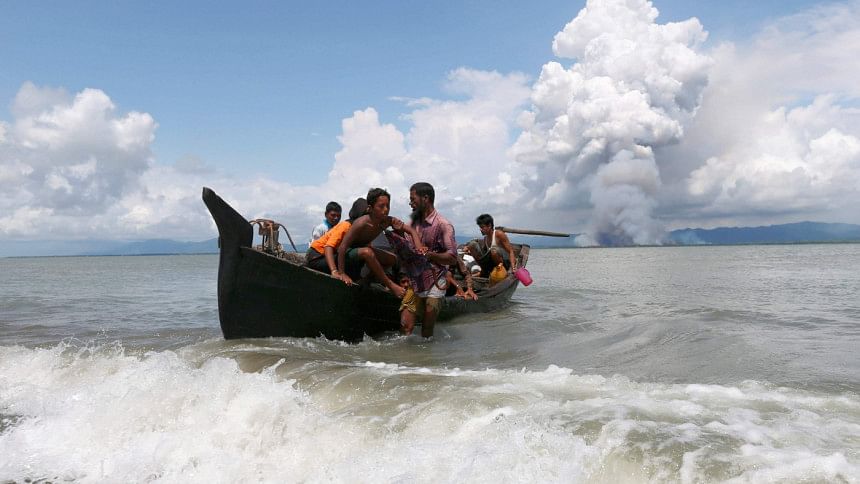Deploy search and rescue mission for boats carrying Rohingyas: rights group to Malaysia

Fortify Rights has called for Malaysia to urgently coordinate with regional governments to deploy search and rescue missions for boats of Rohingya refugees adrift at sea and ensure their safe disembarking.
The statement comes today, a day after the Bangladesh Coast Guard rescued 396 Rohingyas from a boat that departed Bangladesh for Malaysia nearly two months ago. Malaysian authorities reportedly forced the boat back out to sea and the refugees were subsequently adrift for weeks, resulting in the death of 60 people.
Sources in the Rohingya community told Fortify Rights that at least two other ships remain adrift at sea between Bangladesh and Malaysia. A police official in southern Thailand told Reuters five boats carrying Rohingyas had been spotted off the coast of the Satun province late on Monday. It was not possible to independently verify the remarks.
"Sending an ill-equipped ship of refugees out to sea is unlawful and a death sentence," said Matthew Smith, Chief Executive Officer of Fortify Rights, in the statement.
"The Malaysian government should investigate who ordered this Rohingya ship back out to sea and urgently authorise search and rescue missions for any additional boats in distress. Covid-19 is no excuse to send refugees to death at sea."
On April 16, Malaysian authorities located another boat of more than 200 Rohingyas and forced it back to sea around 10:30am. The Royal Malaysian Air Force (RMAF) said in a statement that the RMAF and Royal Malaysian Navy (RMN) "prevented [the boat] from entering the country's territorial waters", and that "such aerial maritime surveillance operations will be intensified."
In 2015, Malaysia, Thailand, and Indonesia pushed back boats of thousands of Rohingya refugees out to sea, causing untold number of deaths. Malaysia and Thailand have long implemented a so-called "help-on" policy, pushing ill-equipped boats of refugees and possible survivors of human trafficking back out to sea.
"Pushback" and "help-on" actions and policies violate the principle of non-refoulement, which prohibits the "rejection at the frontier, interception and indirect refoulement" of individuals at risk of persecution under the 1951 UN Refugee Convention and its 1967 Protocol.
Although Malaysia, Thailand, and Indonesia are not signatories to convention or the protocol, the principle of non-refoulement is part of customary international law and is therefore binding on all states.
Under this principle, all countries in Southeast Asia are obligated to protect Rohingyas from being returned, including through returns that are informal such as pushbacks out to sea.
On April 5, Malaysian authorities intercepted a boat carrying 202 Rohingya, including 45 women and five children, off the northwestern coast of Langkawi island in Malaysia's Kedah State.
On April 10, Fortify Rights called on the Government of Malaysia to release detained refugees and prevent the arbitrary detention of new arrivals, done to minimise health risks due to Covid-19.
Rohingyas continue to face persecution, genocide and other international crimes in Myanmar, and migration routes available to them remain deadly.
There are more than a million Rohingya refugees in camps in the Cox's Bazar district of Bangladesh, where public health risks and the potential of Covid-19 transmissions remain very high.
In February 2020, at least 15 Rohingyas from refugee camps in Bangladesh reportedly drowned in the Bay of Bengal after their boat, carrying more than 100, capsized en route to Malaysia.
"ASEAN needs to learn from its mistakes and not subject Rohingyas to deaths at sea," said Matthew Smith.
"Regional governments, including Bangladesh and Malaysia, should do all in their power to ensure an urgent, humane, and rights-respecting response to refugees arriving by sea."

 For all latest news, follow The Daily Star's Google News channel.
For all latest news, follow The Daily Star's Google News channel. 



Comments